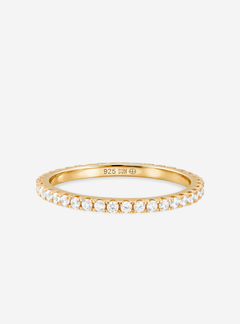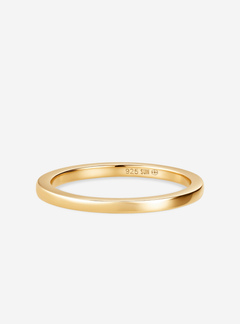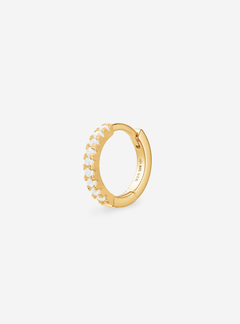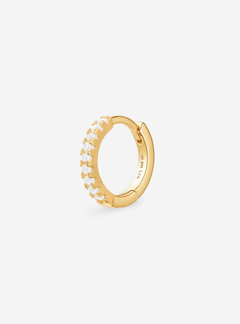Waterproof Jewelry: What Do You Really Need to Know?
We’re all looking for pieces that are stylish, durable, and practical. But what does “waterproof” actually mean in the world of jewelry? Are there materials truly resistant to water? And what precautions should you take to preserve the quality of your jewelry day to day?
Can a piece of jewelry really be waterproof?
In the world of jewelry, the term “waterproof” doesn’t refer to full waterproofing like a technical item (such as a diving watch), but rather to resistance to moisture and contact with water.
In practice, a so-called waterproof piece can be worn in the shower, or while swimming in the sea or pool provided it’s made from the right materials and is properly maintained.
Best materials for water-resistant jewelry
Not all jewelry is created equal when it comes to water resistance. Some materials are better suited to regular wear in humid environments.
Solid gold – the ultimate precious material, solid gold is naturally resistant to water and oxidation. It’s an excellent option for truly waterproof jewelry, though its high cost makes it less accessible.
Vermeil is a great alternative for those seeking jewelry that’s both refined and water-resistant. It’s made of 925 sterling silver coated in 24k gold, with a thick layer (minimum 5 microns). It tolerates occasional water exposure if properly cared for.
Avoid sensitive materials – standard gold plating or brass-based alloys are much more sensitive to moisture. They can tarnish, darken, or peel quickly when exposed to water.
Which metals to choose and what are the limits?
A so-called waterproof jewel can resist humidity and contact with water, such as while swimming at the beach or pool. For true water resistance, solid gold remains the most reliable material, followed by vermeil, which combines a 925 silver core and a 24k gold coating of at least 5 microns. In contrast, brass or standard gold-plated jewelry are more sensitive to humidity and deteriorate faster. To know if a jewel is really water-resistant, it’s essential to understand its composition and plating thickness.
Tips to make your “waterproof” jewelry last longer
Even jewelry designed to resist water needs care to maintain its shine. Here are a few tips to follow:
Rinse with fresh water after contact with salt water, chlorine, or sweat.
Dry thoroughly with a soft cloth after each exposure to moisture.
Avoid chemical products: cleaning agents, perfume, hand sanitizers can damage metal surfaces.
Store jewelry individually in a pouch or box to avoid scratches and oxidation from friction.

Waterproof jewelry: when should you wear it?
So-called waterproof jewelry is ideal for anyone who wants to wear their favorite pieces without interruption, whether daily or on vacation.
In the shower, materials like vermeil or solid gold can handle moisture if dried immediately afterwards.
While traveling, water-resistant jewelry is perfect for avoiding constant removal, while still looking polished.
At work or in daily life, waterproof jewelry lets you keep your style without worrying about your routine.
Waterproof jewelry is possible… with the right choices
A truly waterproof jewel isn’t necessarily made to be constantly submerged, but it can easily handle everyday wear. To achieve that, it’s crucial to choose the right materials such as solid gold or vermeil, and follow a few simple care steps.
By investing in quality jewelry thoughtfully designed for daily use, you ensure a comfortable and lasting experience — without compromising on style.








Leave a comment